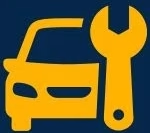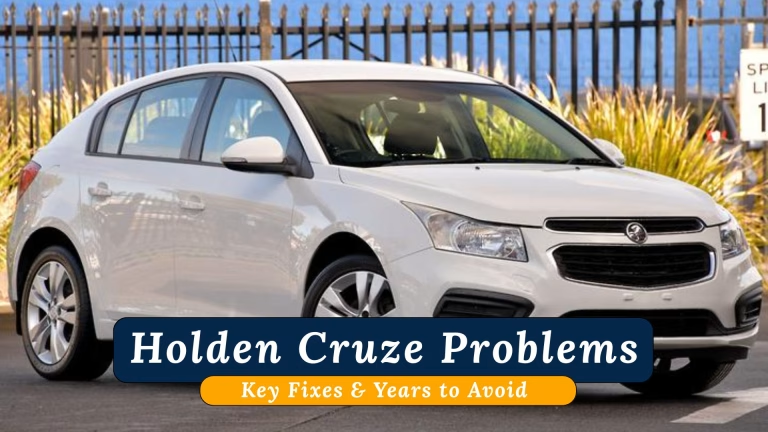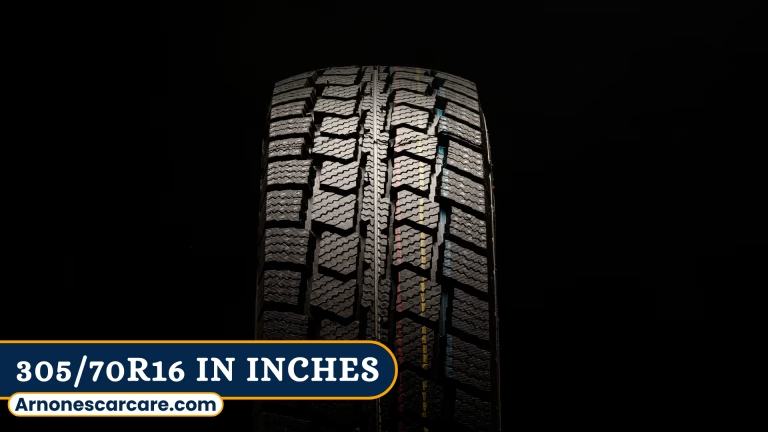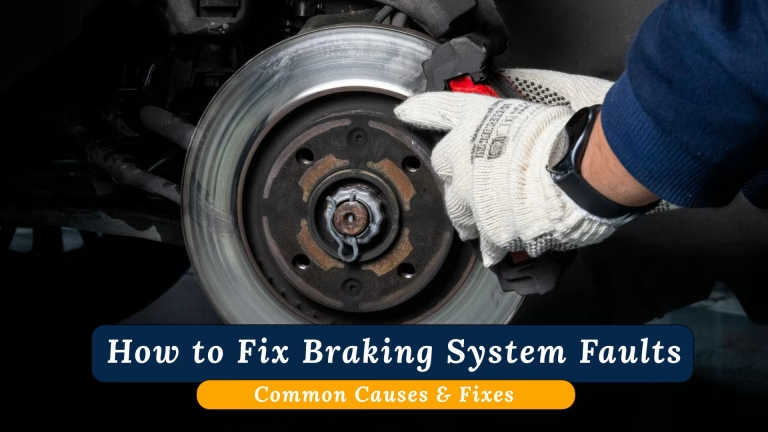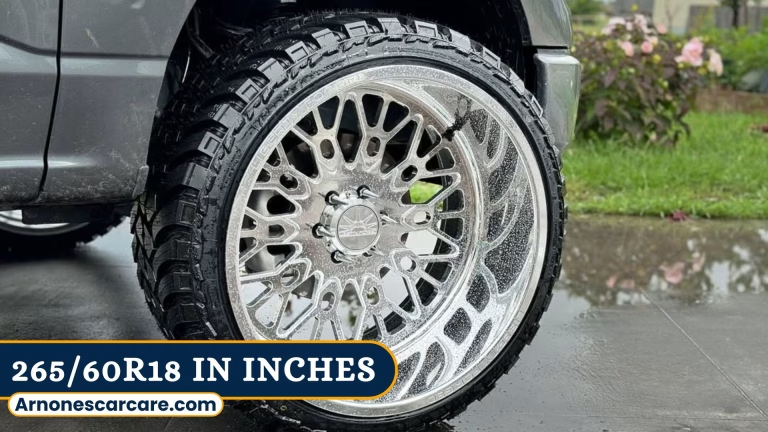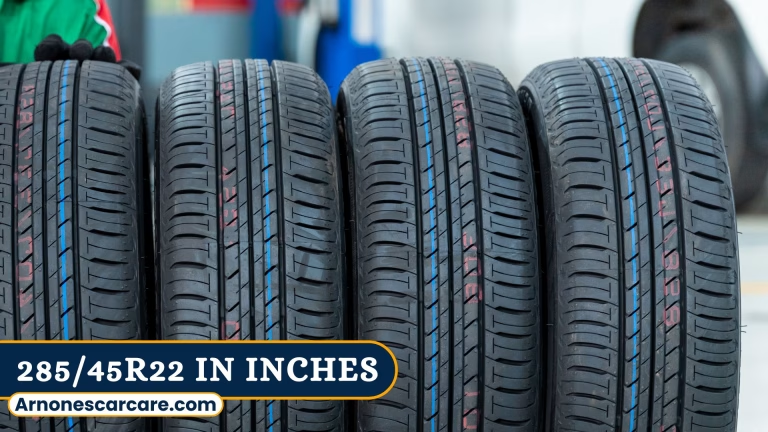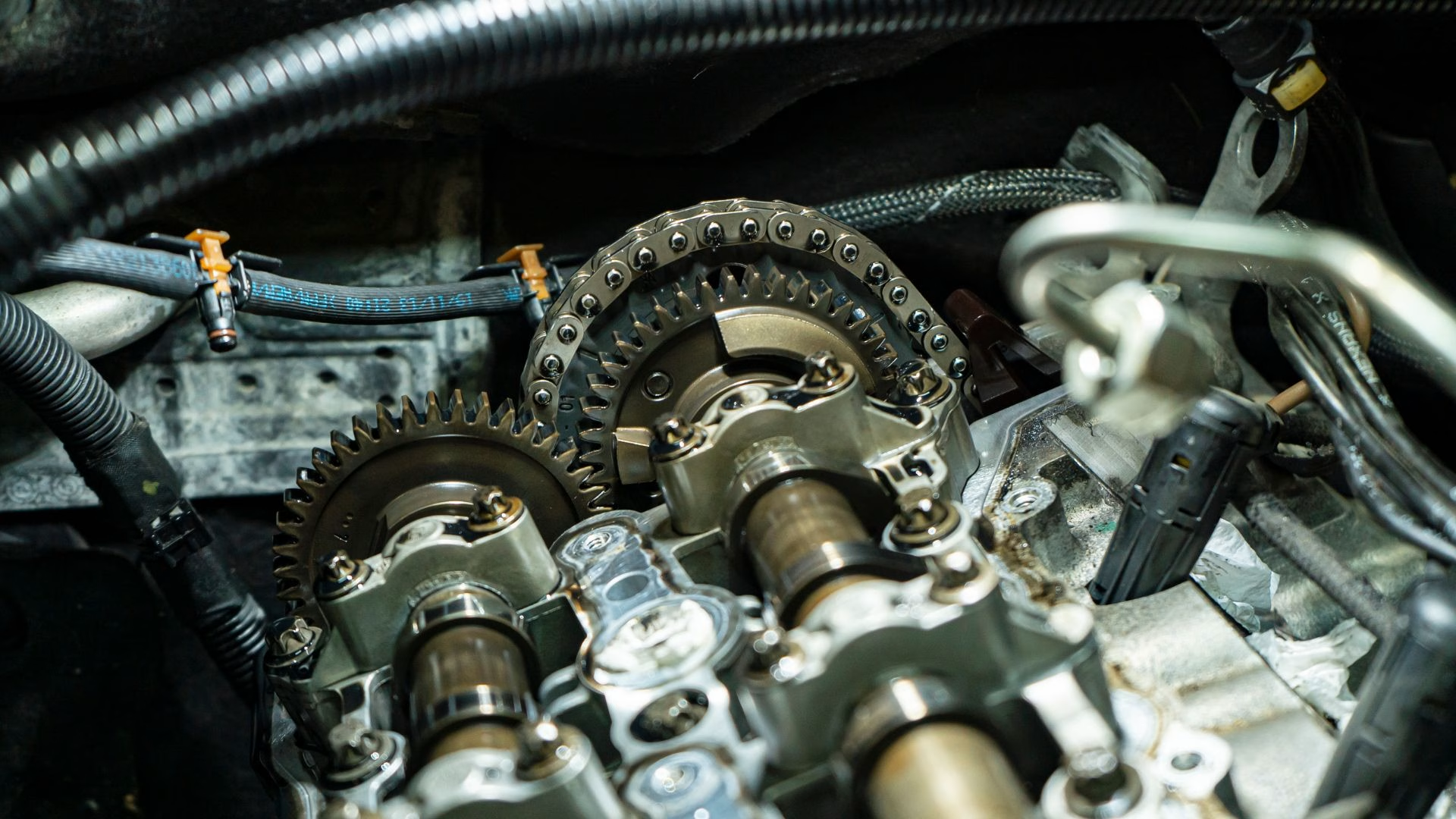
The engine timing chain is a vital part of your car’s engine, ensuring the precise coordination of internal components for smooth performance. But what exactly is it, and why does it matter? Simply put, a timing chain links the crankshaft and camshaft to control the opening and closing of the engine’s valves.
Without it, your engine wouldn’t run. This guide dives into everything you need to know about timing chains, including common issues, costs of replacement, and how to keep your engine running at its best.
What Exactly Is an Engine Timing Chain?
The engine timing chain is a robust metal chain that connects the crankshaft and camshaft. Its role is crucial: it ensures the precise synchronization of the engine’s internal components. This synchronization opens and closes the intake and exhaust valves at just the right moment, allowing air and fuel to enter and exhaust gases to exit. Without it, your engine simply wouldn’t run.
While timing belts, a rubber alternative, are found in some vehicles, timing chains are more durable. I like to explain it like this to customers: A chain is like a steel watch strap vs. a rubber band. The former is sturdier, lasts longer, and works seamlessly when lubricated with engine oil.
When Does the Timing Chain Need Attention?
Although timing chains can last well over 100,000 miles, I’ve seen chains begin to show signs of trouble around the 80,000-mile mark, especially if regular oil changes haven’t been performed. Chains rely on clean engine oil for lubrication. Dirty or old oil accelerates wear and can eventually lead to chain stretching or failure.
Symptoms of Timing Chain Problems
One memorable case was when a customer, Jamie, brought in her Toyota Camry because of a rattling noise under the hood. She described it as a metallic “clattering,” which grew louder on startup. I immediately suspected her engine timing chain tensioner was struggling to keep the chain tight. Sure enough, upon inspection, the chain was loose, and the tensioner wasn’t working effectively.
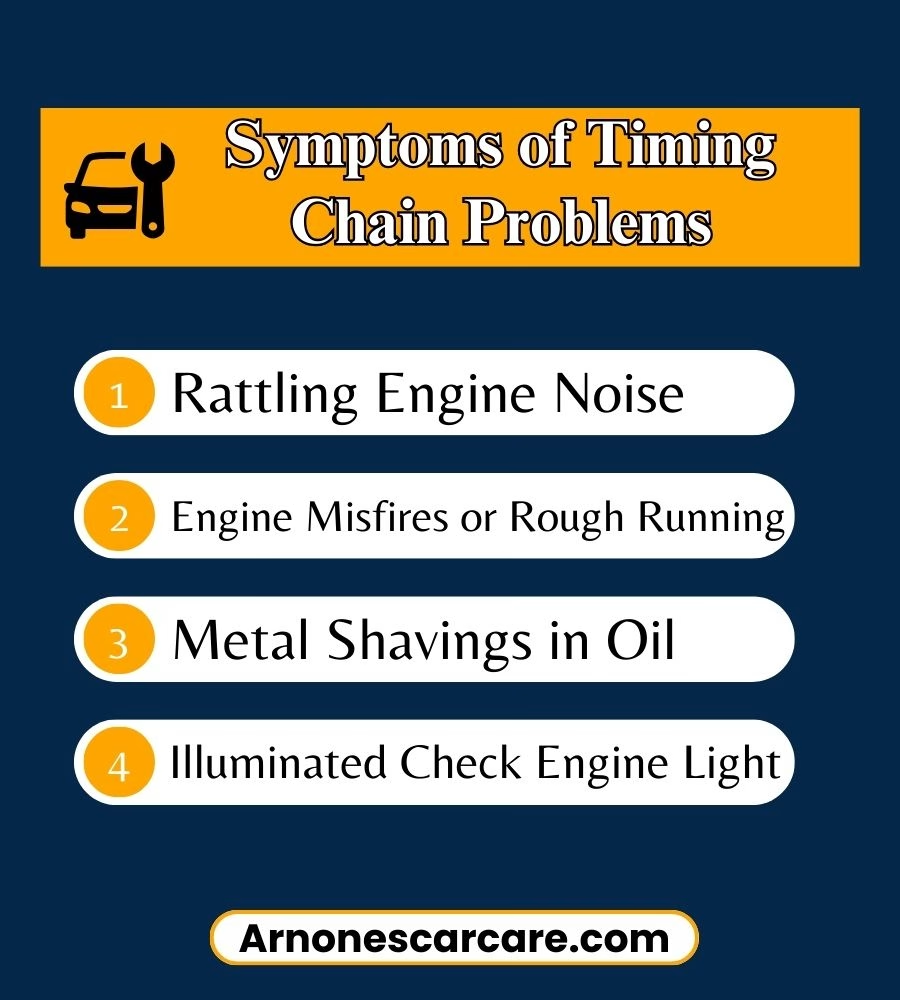
Here are key warning signs to watch for:
- Rattling Engine Noise: A stretched or worn chain often produces a rattling sound, especially during cold starts or idling.
- Engine Misfires or Rough Running: A stretched chain can throw off your engine’s timing, leading to misfires.
- Metal Shavings in Oil: Worn timing chains or guides may shed metal particles that end up in your engine oil. I once showed a customer the filter from her oil change covered in fine metallic debris—that visual speaks volumes.
- Illuminated Check Engine Light: Modern vehicles have sensors that detect subtle timing issues before they manifest as big problems.
Engine issues related to these symptoms can also lead to larger problems, such as knocking sounds from the engine, which is why timely diagnosis is critical.
The Cost of Timing Chain Replacement
Replacing an engine timing chain isn’t a quick job. The chain is buried within the engine, so getting to it involves removing multiple components. The timing chain replacement cost typically ranges from $1,000 to $2,500, depending on the make and model of your vehicle. While the chain itself might cost $100–$250, the labor makes up the bulk of the expense. This is why I always recommend combining this service with other necessary repairs, like replacing the timing chain kit which includes guides, tensioners, and sprockets.
One of my customers, Alex, opted to replace his timing chain along with the water pump, which saved him additional labor costs down the road. It’s these kinds of strategic repairs that make a big difference in overall maintenance savings. If severe issues arise, sometimes even an engine rebuild may be necessary to restore performance.
Why Do Timing Chains Fail?
I often get asked during consultations, “If timing chains are so durable, why do they fail?” The answer usually boils down to three main reasons:
- Improper Maintenance: Skipping oil changes or using the wrong grade of oil accelerates wear and tear on the chain and its guides.
- Tensioner Issues: The timing chain tensioner, which keeps the chain tight, can lose its hydraulic or mechanical ability to function over time.
- High Mileage: Even with perfect maintenance, no part lasts forever. Chains inevitably stretch after tens of thousands of miles.
One example that still sticks with me is a 2011 Chevy Malibu that came into my shop. The car had 195,000 miles, and the timing chain looked like it had been through a war. The owner admitted she frequently postponed oil changes. This neglect caused the chain guides to deteriorate and led to severe slack in the chain. Regular maintenance, including taking care of components like your air filter, plays a vital role in extending the life of your engine parts.
Timing Chain vs. Timing Belt
I often explain to customers that the choice between a timing chain and a belt is made during the engine’s design. Belts are quieter and cheaper but require replacement every 60,000–90,000 miles. Chains, on the other hand, are noisier and more expensive upfront but can last the entire life of the engine with proper care.
While some customers express worry about timing chain noise, especially the ticking sounds, I reassure them that a well-lubricated chain should be quiet in normal operation.
Can You Replace a Timing Chain Yourself?
This question comes up a lot, especially from DIY enthusiasts. While I’m all for empowering vehicle owners, replacing a timing chain requires precision tools, an understanding of engine timing, and access to a reliable engine timing chain guide or diagram.
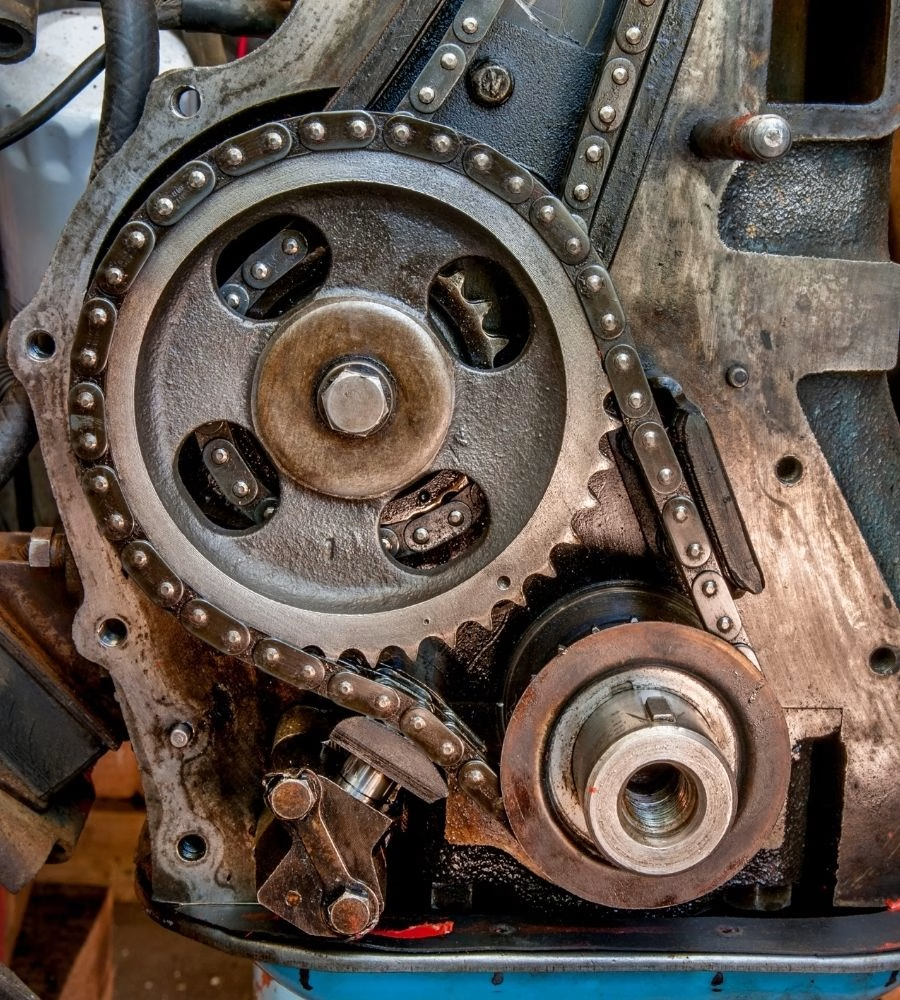
I’ve seen DIY mistakes lead to catastrophic engine failure. If you’re considering this as a project, I recommend starting with cars that have simpler engine designs. And remember, always replace associated components, like the tensioners and guides, to avoid redoing the same job later.
The Role of Arnone’s Car Care
At Arnone’s Car Care, we pride ourselves on guiding our customers through necessary repairs with honesty. Whether it’s showing a customer an engine timing chain diagram to explain their repair or suggesting preventative maintenance, we’re here to build trust and keep your car running smoothly.
Engine timing chain replacements, while costly, are integral to your vehicle’s health. If you notice any symptoms or your car has crossed 100,000 miles, consider bringing it in for an inspection. As a family-owned business with over 50 years of experience, we treat every car like it’s part of our own fleet. After all, we’re not just fixing cars—we’re building relationships, one repair at a time.
Visit Professional Diagnostics for Your Car
Noticing unusual sounds or performance issues in your vehicle? Don’t wait for things to get worse—bring it to Arnone’s Car Care. Our expert team in Kansas City offers reliable diagnostics and expert repairs to get your engine back in shape. Contact us at (816) 471-8560 to set up an appointment today. We pride ourselves on honest, trustworthy service that keeps you and your car secure on the road.
